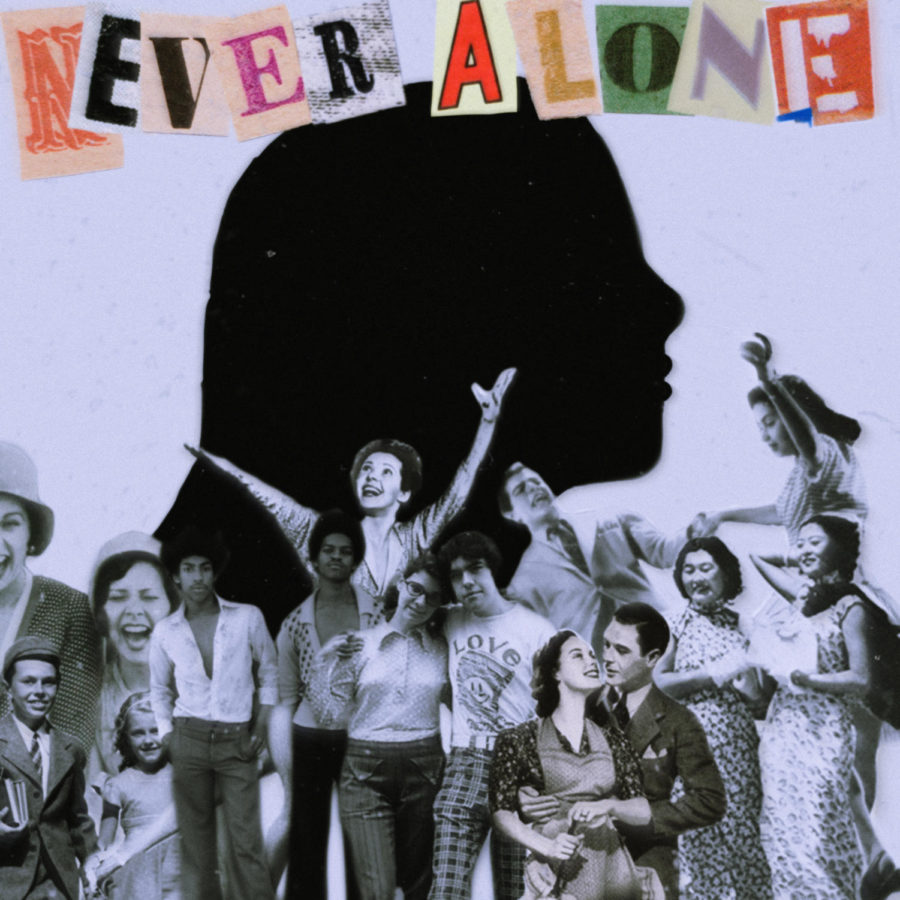With A Little Help From My Friends
Mental health and how you’re never alone
You are never alone :))
Mental Health is an overwhelming and important topic that has recently made its way into modern day conversations. Finally receiving it’s well needed attention.
Ever since the pandemic hit in the US back in March 2020, children and adolescents have experienced higher rates of anxiety, depression, and stress, and even more specific issues such as addictive internet behaviors.
The U.S. Center for Disease Control and Prevention (CDC) reported that from April through Oct. of last year, children between the ages of 5 and 11 visiting an emergency department because of a mental health crisis climbed 24 percent compared to that same time period in 2019. Among 12 to 17 year old’s, the number increased by 31 percent.
With the shift back into school this year, students have felt a bit stressed and overwhelmed. For senior Zackary Scott, returning to school hasn’t been half bad.
“It has had a good effect and a bad one at the same time. I’ve definitely felt tired and exhausted all the time but it has been alright returning because I get to see the people I enjoy being around,” Scott said.
With students officially back in school, the amount of school work doubles, and the stress of staying caught up in class is still an issue. Being surrounded by other students and friends seems to comfort those who felt alone back when school went completely virtual.
“Honestly, [coming back to school] helped my mental health. Being at home all day and talking to no one but my parents and my dog and people at work really made me feel lonely sometimes, so coming back and getting to talk to people has helped me not feel so alone,” Eneidi Hernandez, senior, said.
Checking in on friends, family, or even strangers is a wholesome way to show someone you care and make them feel appreciated and wanted.
Family and friends also play an important role in our lives. Even in the smallest of ways, whether it’s cooking together, watching a movie, starting a conversation, or having a get together. Spending time with the ones you love most has been proven to be one of many ways to help improve our mental health and well being.
A casual family dinner or a night out together where you engage in these precious moments has been scientifically proven to help cope with stress. A study conducted by Carnegie Mellon University found that people use their family and friends as a stress buffer, talking about their problems instead of seeking negative coping mechanisms like drinking alcohol, smoking or doing drugs.
The emotional support provided by social ties has also proven to enhance your psychological well-being. One study found that people who view their friends and families as supportive reported a greater sense of meaning in life and felt like they had a stronger sense of purpose.
As well, an article in the American Society of Aging noted that older adults with larger social networks have a good episodic memory, better cognitive functions and a lower allostatic load, which is the wear and tear on the body and brain from being stressed.
Having a good relationship with marital partners, adult children, siblings, and friends contribute to these positive health effects.
Friends also play a significant role in promoting your overall health. Adults with strong social support have a reduced risk of many significant health problems, including depression, high blood pressure and an unhealthy body mass index (BMI). Studies have even found that older adults with a rich social life are likely to live longer than their peers with fewer connections.
Having a positive family environment could also support good mental and emotional health, which in turn could lead to better physical health. Strong family relationships marked by open communication, honesty, humor, and reassurance could strengthen your mental and emotional well-being.

